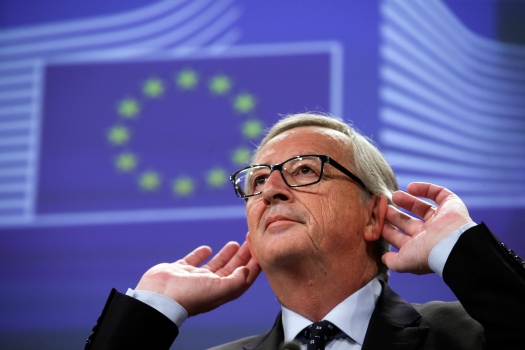YourThought.eu: the rationale and the objectives

National borders were “the worst invention ever made by politicians”,
European Commission President Jean-Claude Juncker claimed last summer
at the European Forum Alpbach 2016. In this context, he also added that
Europe should do more to help asylum seekers and Europe’s people should
show solidarity with refugees and their children. Acting in this spirit,
approximately 160.000 people marched in Barcelona on 18 February 2017
to challenge their national government over its failure to accept the
country’s EU quota of refugees.
Finding strength through common values
Among politicians, there has been the
growing tendency to look towards Europe whenever there is somebody to
blame, but to highlight the single State’s glory whenever there is a
positive outcome to praise. However, being united in a time of
difficulty can only make us more resistant. Nevertheless by only coming
together in harsh times, we risk missing the great opportunities Europe
has to offer. By joining our diverse cultures, we can create a
prosperous future. ‘United in diversity’, our European motto, means guaranteeing ‘peace and prosperity, while at the same time being enriched by the continent’s many different cultures, traditions and languages’.
By embracing our diversity and sharing the same European values, we can
truly learn from each other and benefit from our shared experiences.
In light of this consideration, our aim is to investigate what European identity means according to European citizens.
Building on this, we want to explore whether these values are shared
across the continent and understand to what extent people feel European
in their daily lives. In our investigations, we would like to be as
inclusive as possible and reach out to those people whose voices are not
heard so easily. In particular, we want to target young people who, for
various reasons, have never studied, worked nor lived in another Member
State to ask to what extent and how they feel European.
Digging deeper: what do marginalised Europeans think?
Does the majority of our continent’s inhabitants aspire to similar values? As reported by the Eurobarometer 2015, ‘an absolute majority of Europeans now considers that EU Member States are close to each other in terms of shared values’. The same source reports that ‘more than two-thirds of Europeans feel that they are citizens of the European Union’.
This is great news, but we want to assess to what extent young people
feel represented by such findings. For instance, two-thirds of Europeans
(66%) report they could trade off less freedom of the individual for
having more equality and justice. Why did they choose freedom over
equality and justice? What about the other 34%? Who are they?
Another Eurobarometer survey conducted in
2012, investigating European Values, found that among the values that
represent the EU best, Europeans cite peace at the top, followed by
democracy, human rights and the rule of law. These are then followed by
respect for other cultures, solidarity, respect for human life and
individual freedom. Despite some countries having different orders,
there is no major disparity in the rankings. Are these findings still
true today?? Do underprivileged people feel the same? Would
underrepresented minorities give the same answers?
Learning from each other to build a common future
The EU has expanded relatively quickly
and it is important for the European people who live in it to realise
that their Union has been built on common values. Notably, with populist
voices becoming louder and louder and hate and extremism echoing in our
daily lives, we must ensure we do not lose our goals, our values and
our fraternity. Populist and nationalist voices may try and melt the
glue that keeps us united, the sense of community that holds the EU
together.
We must acknowledge that together we can
achieve more and better things. We have a great opportunity to get in
touch with other people and learn from their stories of the past to
build a promising future together.
With the overarching aim of investigating European values and identities, our research is composed of two main phases:
In a first phase we will address professionals in the institutions and
academic voices on what they consider to be European values. In a second
part of our research, we will need young people contributions and ask
what the most important European values are to them and to what extent
they feel part of this huge European community of ours. Please,
if you are aged 18-35 aged, keep an eye on this website or on our
Facebook page for future updates, if you want to have your say and for a
future competition!
Your Thought matters!
Written by Guia Bianchi

Comments
Post a Comment